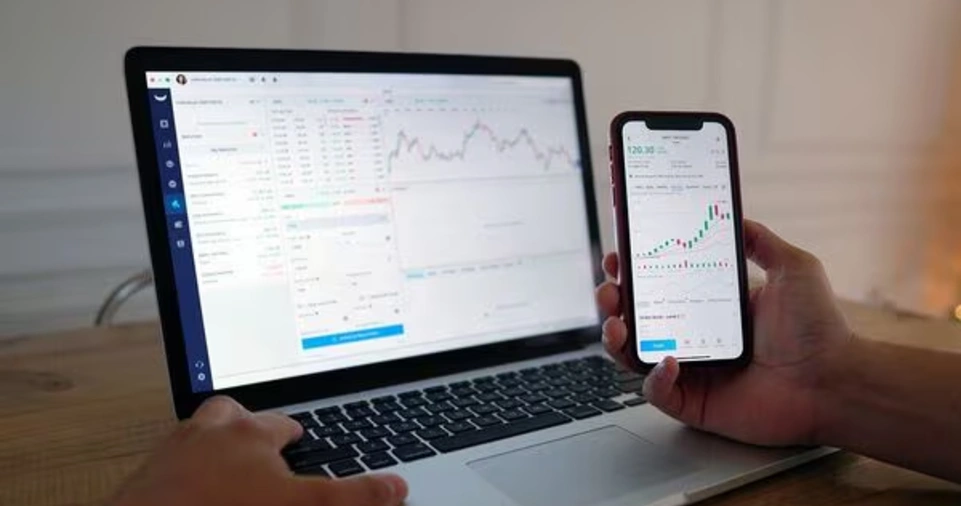Cryptocurrency has revolutionized the financial world, offering decentralized and digital alternatives to traditional currencies.
While this innovation has opened up new investment opportunities, it has also given rise to numerous scams and fraudulent activities.
Scammers exploit the decentralized nature of cryptocurrencies, anonymity, and lack of regulation to deceive unsuspecting investors.
From Ponzi schemes to fake ICOs and phishing attacks, cybercriminals use various tactics to steal funds and personal data.
If you’re interested in investing in cryptocurrencies, it’s crucial to stay informed and vigilant to avoid falling victim to these scams.
This guide will explore different types of cryptocurrency scams, how to identify them, and best practices to protect your investments.
Whether you’re a beginner or an experienced trader, following these security measures will help safeguard your digital assets and ensure a safe crypto trading experience.
Let’s dive into the details and uncover how you can avoid cryptocurrency scams and frauds effectively.
Steps to Avoid Cryptocurrency Scams and Frauds

Research Before Investing
Why Research is Important?
The crypto market is filled with thousands of cryptocurrencies, and new projects emerge daily.
While some of these projects are legitimate, many are scams designed to lure investors with false promises.
Conducting thorough research before investing is the first and most crucial step to avoid scams.
How to Research a Cryptocurrency Project?
Check the Whitepaper:
Every legitimate cryptocurrency project publishes a whitepaper detailing its technology, objectives, and roadmap. If a project lacks a whitepaper or has vague, copied content, it’s a red flag.
Review the Team Behind the Project:
Verify the identities of the project’s founders and developers. If they are anonymous or have no verifiable history in the crypto industry, it could be a scam.
Analyze Community Feedback:
Join crypto forums and social media groups like Reddit, Twitter, and Telegram.
A genuine project will have a strong and active community, while scams often have fake followers and manipulated engagement.
Look for Independent Audits:
Many reputable projects undergo third-party security audits to ensure transparency. If a project lacks audits, it might be risky.
Check Market Capitalization and Liquidity:
A project with low trading volume and liquidity might indicate manipulation or fraud.
By taking these steps, you can minimize the risk of investing in fraudulent cryptocurrency projects and make informed decisions.
Use Trusted Cryptocurrency Platforms
Why Platform Security Matters?
Cryptocurrency exchanges and wallet providers are common targets for hackers and scammers.
Using a trusted and secure platform can prevent unauthorized access to your funds and personal data.
How to Choose a Secure Exchange?
- Reputation and Track Record: Choose exchanges with a strong reputation and long-standing presence in the market (e.g., Binance, Coinbase, Kraken).
- Security Measures: Ensure the platform has security features like Two-Factor Authentication (2FA), cold storage for funds, and encryption protocols.
- Regulatory Compliance: Legitimate exchanges comply with financial regulations and have proper licensing.
- Withdrawal and Deposit Policies: Read the exchange’s withdrawal and deposit policies to ensure transparency.
Using a well-established and secure platform reduces the risk of losing funds due to fraud or hacking attempts.
Watch Out for Phishing Scams
What is a Phishing Scam?
Phishing scams are fraudulent attempts to obtain sensitive information such as passwords, private keys, and personal details by disguising as trustworthy entities.
How to Identify and Avoid Phishing Scams?
- Check Website URLs: Scammers create fake websites that mimic legitimate platforms. Always verify the URL before entering login credentials.
- Beware of Suspicious Emails and Messages: Avoid clicking on links from unknown sources, as they may lead to phishing sites.
- Use Official Apps and Websites: Always download crypto wallets and exchanges from official sources, not third-party websites.
- Enable Security Features: Use 2FA and security notifications to monitor unauthorized access.
By following these steps, you can protect your accounts from phishing scams.
Avoid Ponzi and Pyramid Schemes
What are Ponzi and Pyramid Schemes?
Ponzi and pyramid schemes promise high returns for recruiting new investors rather than generating legitimate profits.
These scams eventually collapse, leaving investors with massive losses.
Red Flags of Ponzi and Pyramid Schemes
- Guaranteed High Returns: No legitimate investment can promise consistent high returns with no risk.
- Emphasis on Recruitment: If profits depend on bringing in new members instead of a real product or service, it’s a scam.
- Lack of Transparency: Fraudulent schemes often hide financial records and operational details.
Avoiding such schemes can protect you from financial losses and legal troubles.
Secure Your Private Keys
Why are Private Keys Important?
A private key is the most critical aspect of cryptocurrency ownership. Losing or sharing it can result in total loss of funds.
How to Keep Private Keys Safe?
- Use a Hardware Wallet: Store your crypto in a hardware wallet like Ledger or Trezor.
- Avoid Storing Private Keys Online: Never save them in cloud storage, email, or notes on your phone.
- Backup Your Keys: Write them down and keep them in a secure location.
- Never Share Your Private Key: Scammers often ask for private keys; never share them.
Following these security measures ensures that your funds remain safe from cyber threats.
Beware of Fake ICOs and Airdrops
What are ICOs and Airdrops?
Initial Coin Offerings (ICOs) and airdrops are fundraising methods where investors receive tokens. Scammers create fake projects to steal funds.
How to Identify Fake ICOs and Airdrops?
- Check Official Announcements: Only participate in ICOs and airdrops announced on verified websites and social media.
- Verify Smart Contracts: Use blockchain explorers to confirm token legitimacy.
- Avoid Providing Private Keys: Legitimate airdrops never require private keys.
Researching thoroughly before participating in ICOs and airdrops prevents losses from scams.
ALSO READ:
Conclusion
The rise of cryptocurrencies has also led to an increase in scams and fraudulent activities.
Staying informed and following best practices can help protect your investments.
Always conduct thorough research, use secure platforms, be cautious of phishing attempts, and never share your private keys.
Recognizing red flags in Ponzi schemes, fake ICOs, and suspicious platforms can prevent financial losses.
By implementing these measures, you can navigate the crypto world safely and securely.











